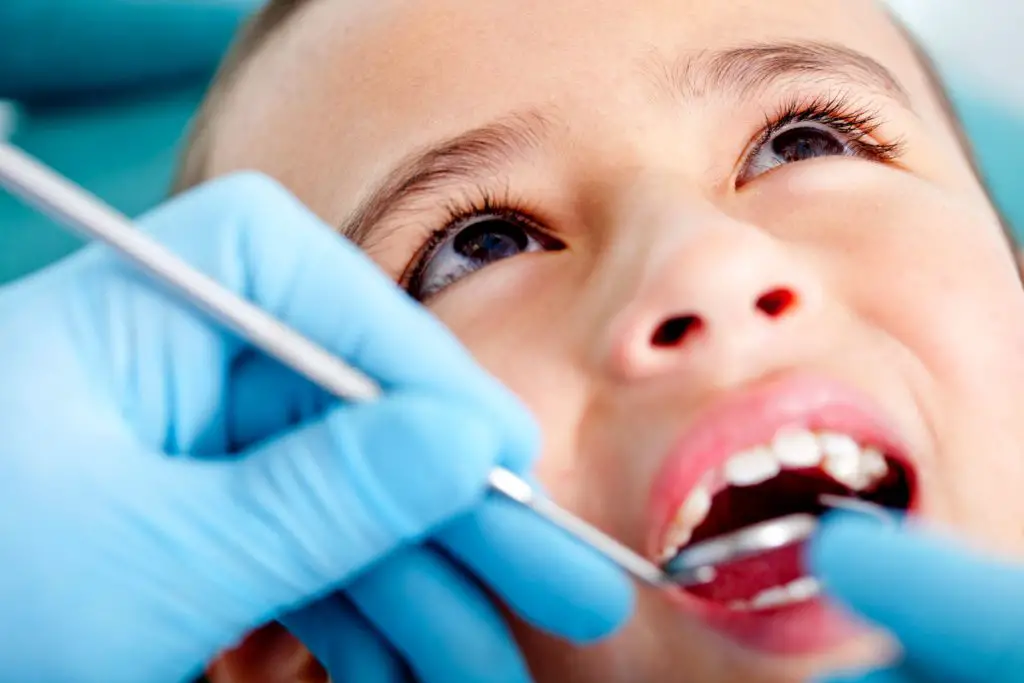Table of Contents
Parents are responsible for discussing important matters with their kids – especially when it comes to health, safety and responsibility.
Oral hygiene can be a challenging topic to explore with young children. However, as a parent, you need to properly approach this subject to help your child better understand why taking care of their teeth is important.
Setting things straight
Your child looks up to you, and they believe you have their best interests in mind (and you do!). This is why it is so important that you answer their questions before they visit the dentist.
Choose a time to sit down with your child and open up a conversation about dental care and hygiene. You can initiate it by asking straightforward questions about their teeth.
For example, you can ask:
- How do your teeth feel?
- Do you have any pain when you eat or drink?
- Do you experience any discomfort during or after brushing?
Make sure to keep the conversation fun and lighthearted and stay far away from any scare tactics. An affectionate and tender approach is the best way to gain (and maintain) your child’s trust and will make conversations about pediatric dentists and personal dental care much more comfortable.
Here are the top three questions kids ask about dentists (and the best ways to answer them).
1. What is a dentist?
Understandably, one of the first things your young child is going to want to know is what or who a dentist actually is.
You want to explain to your child that a dentist is a doctor who is specifically trained to care for teeth. Tell them how much the dentist loves teeth and how they want to make sure that your child’s teeth grow healthy so they can have strong, beautiful teeth when they become a big boy or girl.
You may want to throw in that dentists also love to give out stickers or other little prizes to good children!
2. Why do I have to go to the dentist?
Many young children are scared of trips to the dentist, but the fact remains that your child needs to visit every six months to ensure their teeth and gums are healthy.
Answer the “why” question by explaining that it is essential that a dentist looks at everyone’s mouth to ensure there are no problems and that the teeth are developing correctly as each person grows.
Remind your child that all the older boys and girls go to the dentist as well!
3. What happens when I go to the dentist?
If your child has never been to the dentist before or was too young to remember sufficiently, they may ask questions about what will happen when they go in.
The best answer is the most honest one. Explain that the two of you will stay in the waiting room until the child’s name is called, after which you and your child will go into another room together where the dentist will meet you. Here, the child will be allowed to sit in a big, comfortable chair that is like a huge recliner.
Focus on telling them how comfortable the chair is and emphasize how much space they will have to stretch out. Continue by explaining that the exam will consist of their teeth being cleaned, flossed and checked for cavities. You should describe as much of these processes as you can – and try to make them sound as fun as possible!
While you want to refrain from using words such as “pain,” “shot,” or “hurt,” when you talk about visiting a dentist’s office, you also want to be honest with your children about specific procedures.
If you know something is going to hurt, explain to your child that the dentist has studied for a very long time, has plenty of experience, and can expertly make use of various dental technologies that will help them do everything they can to be gentle during the exam and ensure it isn’t too painful. Remind them again to be a big boy or girl!
Additionally, if you are going to treat them to their favorite meal or an extra trip to the playground after the visit, make sure to include that in the description of the itinerary.
Teaching dental care essentials right
In all aspects of their life, not just with their dental hygiene, you always want to encourage your child to ask questions, and also to be ready to explain things to them in a way that alleviates any fears they may have.
Opening up communication with your child about the importance of healthy teeth will not only build a trusting relationship between the two of you, but will also provide a time and a space for them to open up about any mouth-related issues they may have been hiding.
Ideally, you and the dentist will communicate and work together to ensure the dental visit goes as smoothly as possible. When it comes to soothing a child’s dentist fears, both you and the dentist play a vital role.







